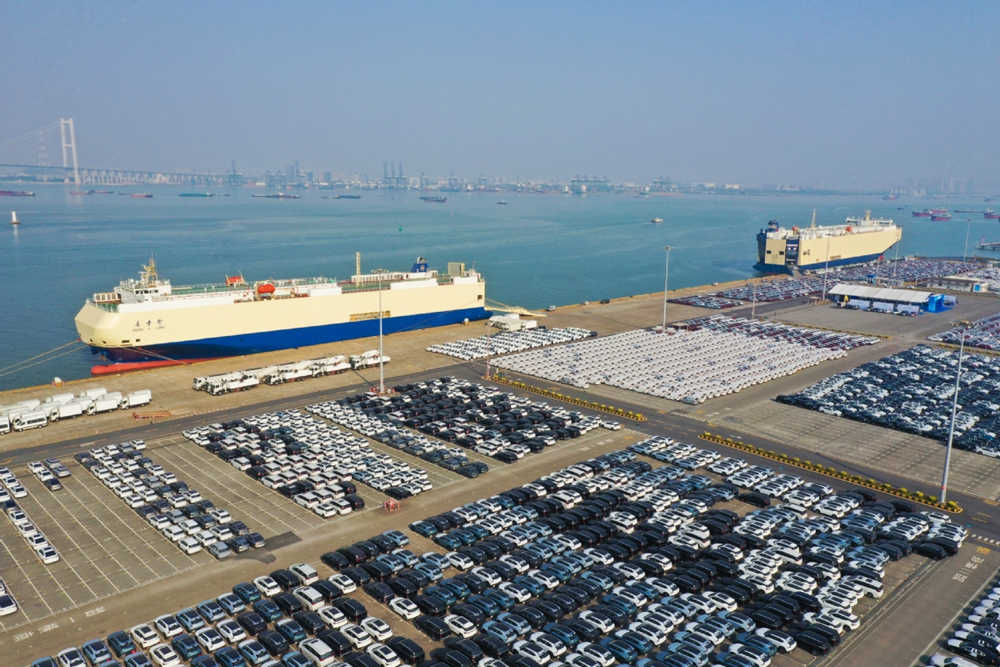Companies exploring new growth opportunities

Guangzhou Port, one of the largest ports in terms of automobile handling capacity, exported 258,000 units of automobiles from January to September, with a year-on-year increase of 56 percent. [Photo provided to chinadaily.com.cn]
With China and Thailand continuing to expand a number of programs to discover new avenues for growth and reap the benefits of free trade deals, their respective companies are increasingly eager to explore business opportunities in each other's markets.
That's the view of business leaders and market monitors, who said many opportunities arise as the result of the countries' ability to adapt to global instability and uncertainty. In response to unprecedented challenges during the COVID-19 pandemic, they chose to reinforce efforts for free, fair and open trade.
China remained the primary source of investment for Thailand in 2022, with Chinese investors directing $2.3 billion into key industries within the kingdom, including electronics, automotive and data centers, according to information released by the Thailand Board of Investment. For example, Chinese automaker BYD is currently building a plant in Thailand. After its completion in 2024, vehicles manufactured there will be sold in the country and exported to other Southeast Asian markets.
"Thailand has a solid base in the automotive industry with mature manufacturing capabilities, so we chose to build a factory here after careful deliberation," said Liu Xueliang, general manager of BYD Asia-Pacific Auto Sales Division.
Meanwhile, State-owned China National Petroleum Corp announced in August that its refined oil project in northeastern Thailand was fully operational. The facility will significantly address the rising demand for improved local supply of refined oil products in the region.
With an annual oil transmission capacity of 6 million metric tons, the strategic energy project, which passes through five provinces, consists of a 342-kilometer pipeline, including a refined oil route and supporting pumping stations, valve rooms and tank farm terminals.
The project will greatly enhance delivery efficiency in the region and better connect Thailand with neighboring countries, according to CNPC, the largest oil and gas producer and supplier in China.
According to Tang Sisi, an analyst at research firm BloombergNEF, China overtook the United States to become the world's largest refiner in 2022. With domestic refining capacity and oil demand nearing their peaks, Chinese refiners have been looking to expand overseas, she said.
"Southeast Asia has become one of the most sought-after regions," added Tang. "Thailand is one of the fastest-growing countries for oil demand in the Asia-Pacific. The country consumed more than 3,000 barrels of oil per day for every $1 billion of GDP output in 2022."
As China has created more favorable conditions for global companies to grow their businesses in a vast market, Thailand's TCP Group — a beverage company — announced in July that it had added investment into its new production base in Nanning, capital of South China's Guangxi Zhuang autonomous region. The move increased the company's total investment in the Chinese market to 3.3 billion yuan ($452 million) over the past two years.
Saravoot Yoovidhya, CEO of TCP Group, said the new production base covers an area of about 90,000 square meters and is expected to become one of the most important production bases for the company's Red Bull products. Notably, it is equipped with four fully automatic production lines.








